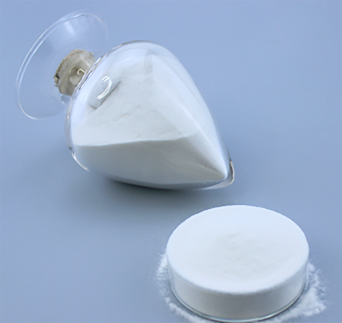
Dec . 01, 2024 11:02 Back to list
hydroxyethyl cellulose ashland
The Role and Applications of Hydroxyethyl Cellulose in Modern Industries
Hydroxyethyl cellulose (HEC) is a non-ionic, water-soluble polymer derived from cellulose, a natural polymer extracted from the cell walls of plants. As a member of the cellulose ether family, HEC has garnered considerable attention across various industries due to its unique properties, such as thickening, binding, and film-forming abilities. Among the prominent manufacturers of such cellulose derivatives is Ashland, a global leader in specialty chemicals. This article explores the role, properties, and diverse applications of hydroxyethyl cellulose, with a specific focus on its use in formulations involving Ashland products.
Understanding Hydroxyethyl Cellulose
HEC is synthesized through the reaction of cellulose with ethylene oxide, resulting in a polymer that exhibits excellent viscosity and stability in aqueous solutions. One of the notable features of HEC is its ability to modify the rheological properties of various formulations, allowing for a high degree of control over consistency and texture. Additionally, HEC is non-toxic and biodegradable, making it an environmentally friendly option for numerous applications.
Key Properties of Hydroxyethyl Cellulose
1. Thickening Agent HEC acts as an effective thickener, enhancing the viscosity of liquids without significantly altering pH levels. This property is particularly important in industries such as cosmetics, personal care, and food, where texture and consistency are critical. 2. Film-Forming Ability When applied as a coating agent, HEC can form a flexible, breathable film, making it valuable in applications like coatings and adhesives. This film-forming ability provides protection while allowing moisture vapor transmission.
3. Stability HEC maintains its viscosity across a wide temperature range and is stable under various pH conditions, allowing its use in diverse environments.
4. Emulsifying Agent By facilitating the mixing of oil and water, HEC aids in stabilizing emulsions, enhancing the performance of products such as lotions and creams.
hydroxyethyl cellulose ashland

Applications of Hydroxyethyl Cellulose
1. Cosmetics and Personal Care Products HEC is widely utilized in the formulation of shampoos, conditioners, lotions, and creams. Its thickening and stabilizing properties ensure that these products maintain a desirable texture, enhancing user experience. Furthermore, its emulsifying properties help in achieving uniformity in formulations that contain both oil and water phases.
2. Pharmaceuticals In the pharmaceutical sector, HEC is employed as a binding agent in tablet formulations, ensuring consistency and stability. Its ability to form gels is advantageous in topical formulations, providing controlled release of active ingredients.
3. Construction Industry The construction sector benefits from HEC's effectiveness as a water-retaining agent in mortar and plaster, contributing to improved workability and adhesion. It enhances the performance of tile adhesives, ensuring that they remain workable for extended periods, which is crucial during installation.
4. Food Industry HEC plays a vital role in food applications, where it is used as a thickening and stabilizing agent in sauces, dressings, and dairy products. Its ability to enhance texture without altering flavor profile makes it an ideal ingredient in food formulations.
5. Oil and Gas Industry The oil and gas industry employs HEC in drilling fluids and hydraulic fracturing fluids. Its viscosity control helps in suspending solid materials, improving the efficiency and safety of drilling operations.
Conclusion
Hydroxyethyl cellulose, especially as manufactured by Ashland, is a versatile and valuable ingredient across multiple industries. Its unique properties—ranging from thickening and binding to film formation—make it essential for achieving desired product performance and end-user satisfaction. As industries continue to evolve and the demand for environmentally friendly materials rises, HEC is likely to play an even more significant role in future formulations. The versatility and adaptability of hydroxyethyl cellulose highlight its importance as a critical component in modern industrial applications, thereby affirming its status as a cornerstone of contemporary chemical engineering and product development.
-
Versatile Hpmc Uses in Different Industries
NewsJun.19,2025
-
Redispersible Powder's Role in Enhancing Durability of Construction Products
NewsJun.19,2025
-
Hydroxyethyl Cellulose Applications Driving Green Industrial Processes
NewsJun.19,2025
-
Exploring Different Redispersible Polymer Powder
NewsJun.19,2025
-
Choosing the Right Mortar Bonding Agent
NewsJun.19,2025
-
Applications and Significance of China Hpmc in Modern Industries
NewsJun.19,2025







